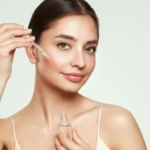Research suggests that up to 95% of people experience acne at some point during adolescence due to hormonal changes occurring in the body.
Adults may also experience acne due to hormonal changes caused by:
- menstruation
- menopause
- polycystic ovarian syndrome
- stress
Keep reading to learn more about how to treat hormonal acne.
What are the different types of hormonal acne?
Treatment for hormonal acne may depend on the type of acne you have and the severity of symptoms. The different types of acne include:
- whiteheads
- blackheads
- papules
- pustules
- nodules
Traditional treatments for hormonal acne
Treatment for hormonal acne will aim to help reduce symptoms and prevent complications, such as acne scars. Your treatment plan may include a combination of lifestyle changes, over-the-counter (OTC) medications, and medical treatments.
Topical retinoids
Topical retinoids may help treat mild to moderate hormonal acne. Some retinoids include:
- tretinoin
- tazarotene (Tazorac)
- adapalene (Differin gel)
- trifarotene
Topical retinoids are available OTC at pharmacies in the form of creams, gels, and lotions. If OTC retinoids aren’t effective, a doctor may prescribe a stronger topical retinoid.
Other common topical medications for hormonal acne may include:
- antibiotics
- benzoyl peroxide
- salicylic acid
Oral contraceptives

Oral contraceptives can be used to help treat hormonal acne in people assigned female at birth. The Food and Drug Administration has approved three oral contraceptives for the treatment of acne. These include a combination of ethinyl estradiol and one of the following medications:
- drospirenone (Yaz)
- norgestimate
- norethindrone
Together, these ingredients target the hormones that can contribute to acne. This can be especially helpful during peaks in hormones, such as ovulation.
Oral contraceptives may not be an option for you if you have a history of blood clots, high blood pressure, or breast cancer. You also shouldn’t take these if you smoke.
Anti-androgen drugs
Anti-androgen drugs can help reduce acne by decreasing the male hormone androgen. Too much androgen in your body can contribute to acne by interfering with hair follicles that regulate skin cells and increasing oil production.
Spironolactone (Aldactone) is primarily used to treat high blood pressure, but it could also help prevent your body from producing more androgen and allow your hormone levels to stabilize.
How to treat hormonal acne naturally
In some cases, natural remedies may help treat mild hormonal acne. However, it’s important to note the research on their effectiveness is limited and mixed. Natural remedies may not be as effective as OTC and medical treatments.
As such, it’s best to speak with a doctor about the potential risks, interactions, and treatment alternatives.
Skin patch test
Before trying a natural remedy for hormonal acne, consider doing a skin patch test to identify and prevent potential allergies.
To do this, apply a small amount of the diluted product to the inside of your wrist. If you don’t experience any irritation or inflammation within 24 hours, it should be safe to apply elsewhere.
Tea tree oil
Tea tree oil may help decrease inflammation, bacteria, and oxidative stress that could contribute to acne. It is available in skin care products like cleansers and toners. You can also use tea tree essential oil as a spot treatment.
Dilute tea tree essential oil with a carrier oil before use. Popular carrier oils include coconut, jojoba, and olive. Add about 12 drops of carrier oil to every one to two drops of essential oil.
Alpha hydroxy acid
Alpha hydroxy acids (AHAs) are plant acids derived mostly from citrus fruits. AHAs are a popular natural remedy for removing excess dead skin cells that clog pores and minimizing the appearance of acne scars.
AHAs can be found in many OTC masks and creams. As with retinoids, AHAs can increase your skin’s sun sensitivity. You should always wear sunscreen when using products with AHA.
Green tea
Topical green tea solutions can help reduce inflammation and lesions associated with acne. You can also try drinking a few cups of green tea daily. However, minimal research exists on the benefits of drinking green tea for acne.
How does diet impact hormonal acne?
The association between diet and hormonal acne isn’t fully understood.
Research suggests that some high-glycemic and dairy foods could affect hormones like insulin and androgen, causing acne to develop.
If you have hormonal acne, you may consider limiting sugar, dairy, and refined carbs, such as white bread and pasta.
On the other hand, foods high in omega-3 fatty acids like salmon may help reduce inflammation and acne.
What else can I do to clear hormonal acne?
To clear up hormonal acne and keep it at bay it’s important to establish an appropriate skincare routine.
Consider trying the following:
- Wash your face in the morning and again in the evening.
- Apply no more than a pea-sized amount of any acne product. Applying too much can dry out your skin and increase irritation.
- Wear sunscreen every day.
- Use only noncomedogenic products to reduce your risk of clogged pores.
Also Read : Vitamins Essential for Anti-Aging Skincare: Unlock the Secret to Ageless Beauty!


